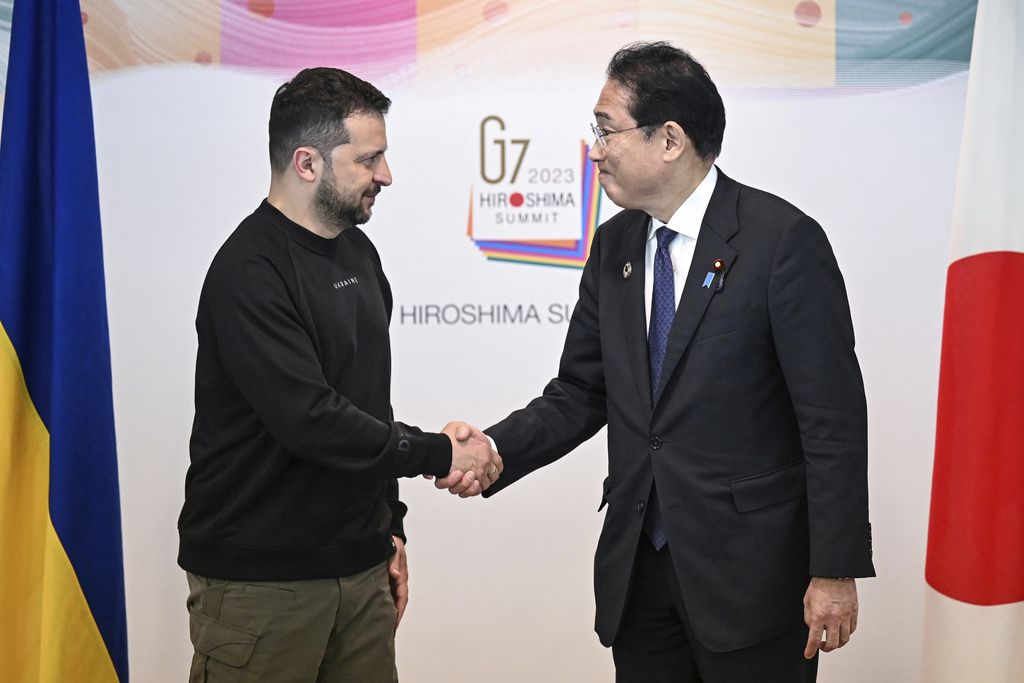There is a somewhat discrete (or rather perverse) charm in the fact that Japanese Prime Minister Kishida invited the leaders of the other G7 countries to his hometown of Hiroshima last weekend. He did so, apparently, to underline the “sincere desire for peace” of the world’s leading countries. This “sincere desire for peace” was also expressed on the second day by the personal appearance — and customary glorification — of the Ukrainian president, but more on that in a moment.
At the height of the Cold War, the first G7, which at the time was just the G6, had plenty to talk about at the Château de Rambouillet near Paris, as the “warm atmosphere of friendship and comradeship” was all there. In fact, the summits would have already begun in 1974, but that year was a very ominous one for the “six.” That is the same year that saw the passing of French President George Pompidou, as well as the resignations of U.S. President Richard Nixon over the Watergate scandal and German Chancellor Willy Brandt due to the discovery that one of Brandt’s inner circle had been a Stasi agent for 20 years. In addition, other countries of the G6 were in the process of changing governments, which led to the first summit being postponed to 1975.
Let us return to the events of our time. Because if ever there was a time when it is truly necessary for the leaders of the world’s major states to demonstrate that they are intellectually and morally ready to formulate a strategy to help the world escape from this increasingly threatening world war vortex, it is now. And yet, instead, the world has witnessed a pathetic burlesque, with two main items on the agenda: to glorify Zelensky and to send a message of warning and discipline to China.
The essence of the Ukrainian president’s speech was the presentation of the Ukrainian peace plan, which he himself and the G7 leaders stressed as “rational.” The rationality of this plan is, according to them, that Russia must withdraw from everything, including Crimea, of course, and will pay reparations of thousands of billions of dollars. Furthermore, its leaders will be brought before an international tribunal, and in this way, there will be nothing to stop the unlimited plundering of Russia.
Now, I have no doubt that this is very rational for the G7, but the possibility cannot be ruled out that the Russians will not see it as equally rational, and so any lasting peace is unlikely to come out of this plan.
Equally “rational” was the dramatic condemnation of China for using its growing global economic power to “exert pressure,” which provoked a genuine outcry from G7 members. That all their power over the past centuries has come from this very sort of pressure, that they are now the ones who are building their global power based on such pressure with a tsunami of sanctions of unprecedented intensity, has hardly been mentioned.
The question now is whether the rest of the world will accept the status quo as presented by the G7.






